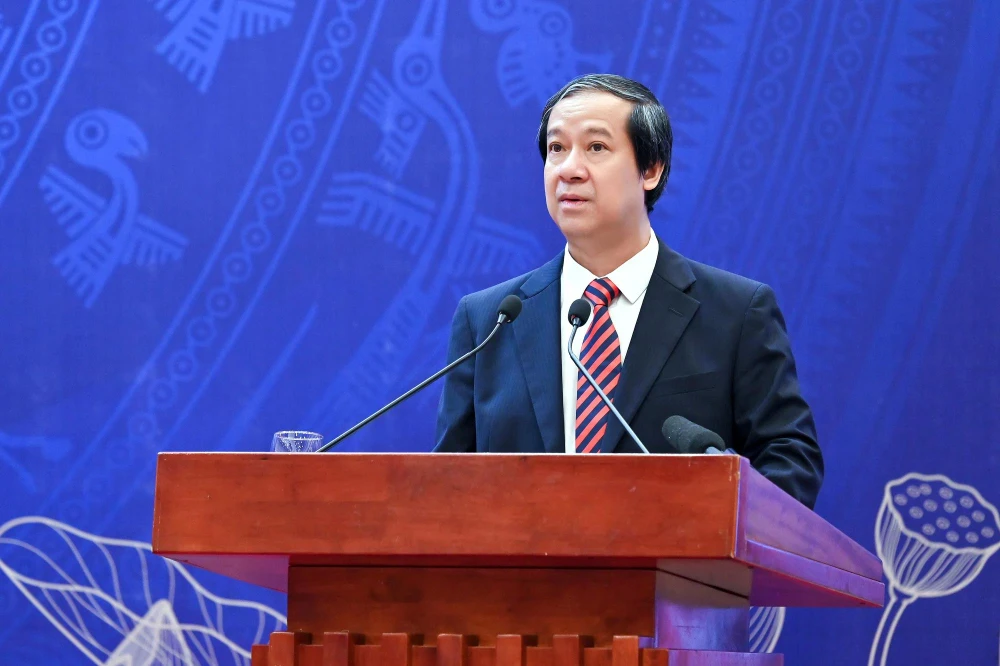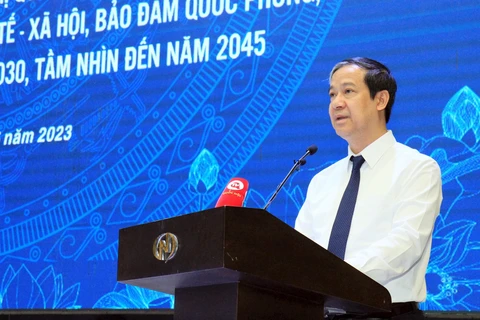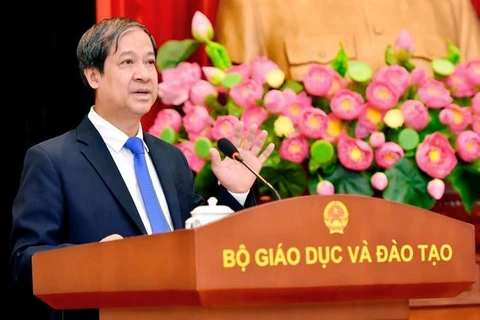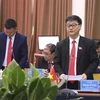
Hanoi (VNA) – Ahead of the 2024-2025 academic year, Minister of Education and Training Nguyen Kim Son shared insights on key focus areas for the sector in the coming school year.
During a recent interview with the media, the minister highlighted the importance of improving policies to elevate the status of teachers, retain existing educators, and attract more talented individuals to the profession.
According to him, as of April this year, there was a nationwide shortage of 113,491 teachers across preschool and primary education levels. Preliminary reports from localities indicate that the number of teachers needed for the 2024-2025 school year has risen by 19,856 compared to the previous year (6,000 for preschools and 13,856 for primary schools). The main reason for this shortfall is a continued increase in student enrollment, leading to a rise in the number of classes (2,327 more preschool groups and 7,150 more primary school classes).
In response, the ministry has directed localities to fulfill their recruitment quotas, placed orders for teacher training, and encouraged universities to align their training with new curriculum requirements, including training for ethnic language teachers, among other work.
The ministry also plans to improve the legal framework to enhance the status of teachers, including the anticipated submission of the Teachers' Law to the National Assembly in October. This law will provide a legal basis for policies related to the remuneration, recruitment, utilisation, management, recognition, and reward targeting the group, while granting the education sector greater autonomy in recruiting and allocating teachers.

The ministry, in coordination with the Ministry of Home Affairs, will advise relevant authorities on allocating remaining staffing quotas as per Decision 72 of the Party Central Committee. The education body will push localities to fill all assigned quotas and implement supportive policies for teachers to foster trust and ensure job security.
Recent changes, such as increased benefits for students majoring in education and adjustments to base salaries, have positively influenced student decisions to pursue teaching careers. Many localities have also introduced special mechanisms and policies to motivate and retain teachers.
These developments indicate significant progress in addressing the challenges faced by the education workforce.
Meanwhile, localities have increased investment in school infrastructure, facilities, and teaching equipment. However, 15.5% of the classrooms nationwide have yet to be upgraded, and there remains a shortage of classrooms in densely populated, mountainous, remote, and disadvantaged areas. Additionally, only 50.63% of the required teaching equipment across the country meets the standard.
Achieving the goal of 100% solidification of educational infrastructure by 2030 and overcoming difficulties related to facilities and school buildings will require substantial efforts from localities, particularly in advising and planning by local Departments of Education and Training.
Mobilising resources for educational investment is a key focus for the education sector in the 2024-2025 school year. As it will set the stage for the next five-year plan, the local departments must proactively draft plans for 2025-2030 to ensure adequate educational investment. Localities must also guarantee that at least 20% of their budget is allocated to education.
Furthermore, local authorities should leverage specific policies and incentives available to each province or city. While the degree of these policies may vary, all localities can identify advantageous areas for educational development. Many have successfully implemented these measures, creating motivation and resources for local education growth.
In the 2024-2025 academic year, the education sector is set to prioritise the effective use of state funds, mobilising investment for education, continuing to upgrade schools, eliminating temporary classrooms, developing schools in rapidly growing or densely populated areas, and ensuring sufficient educational infrastructure and equipment./.






















